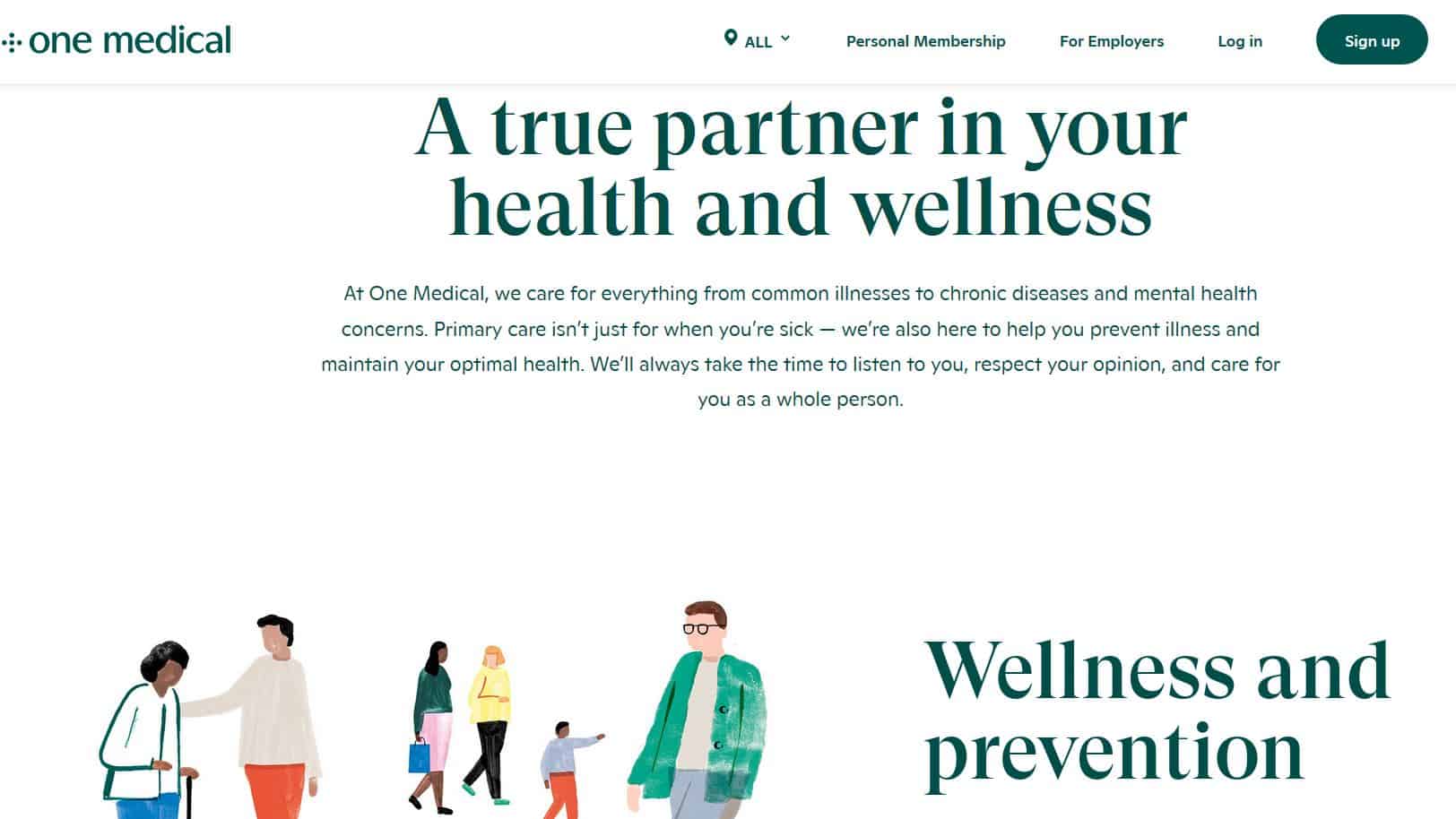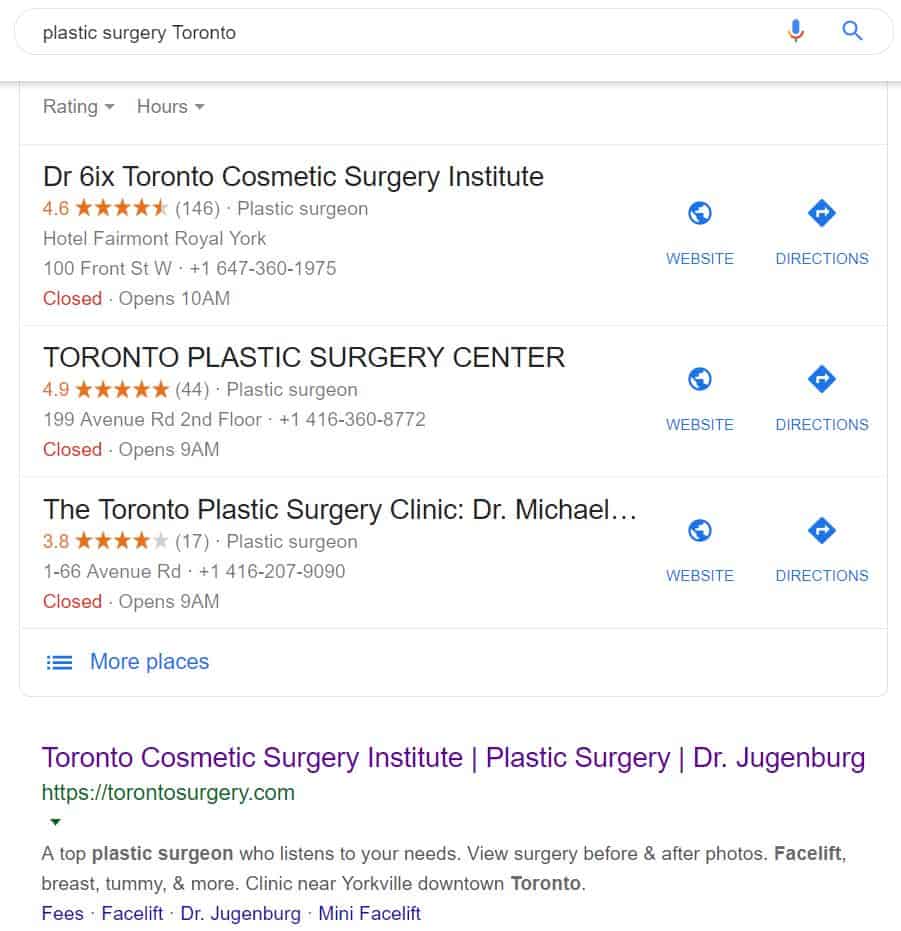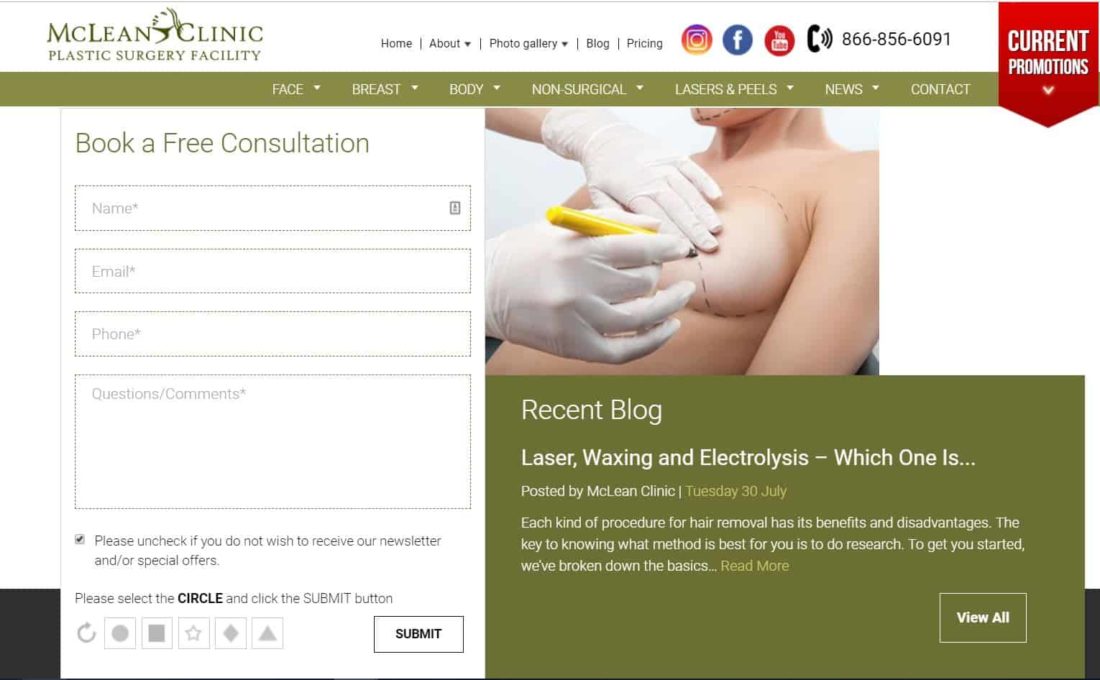Working in the competitive healthcare industry is already difficult on its own. But for medical professionals who have businesses to run and staff to lead, it could be doubly challenging.
Managing your private practice requires not only years (or decades) of medical experience, but business acumen as well. There’s a lot more work involved in running a healthcare business than it used to be.
It’s no longer enough to rely on word-of-mouth referrals from patients and colleagues to keep the business running. Instead you should learn how to be a savvy health marketer and stay abreast of the trends to give your practice a competitive advantage.
This is more important when you’re planning to take your business to the next level. To grow your practice, you should come up with an effective healthcare marketing strategy. How will you keep patient volume up and get new patients to visit your clinic?
Below are 6 practical healthcare marketing strategies that will help you attract more patients and generate leads for your business:
1. Build a patient-centric website
In this digital age, building a website for your healthcare business is no longer an option but a necessity. Your website serves as the face of your organization — your digital home, so to speak. It’s often the starting point for every doctor-patient relationship.
Establishing your brand online means investing in a complete and well-designed website. Your website should provide clear information about your medical services as well as relevant details such as address, contact numbers, and clinic hours. Such information must be readily available so site visitors will know when, how and why they should interact with you.
Furthermore, your medical website must be designed with users – especially mobile users – in mind. It must be easy to navigate and readable on smaller screens, and the pages shouldn’t take long to load.
Remember that prospective patients are looking for quick answers to their healthcare queries. If they don’t find your website helpful within a few minutes of visiting it, chances are they will leave and find solutions elsewhere.
So it’s worth investing in a patient-centric website. Once a visitor lands on your site, it’s your goal to give them value and a reason to stay longer. What benefit will they get from using your website and, ultimately, your services? Why should they choose you over other healthcare providers?
Take, for example, One Medical, an innovative, growing membership-based primary care practice. Their website is not only user-friendly but also one that touches the “pain points” of their target audience.
They brand themselves as a practice that provides “exceptional primary care, designed for real life” and one that is “changing the way you go to the doctor.” They list down reasons for prospective consumers to interact with them, such as the following:
- more accessible and enjoyable health care
- wide range of health services
- nurturing environment for the whole family
- beautiful and calming offices
- on-time and longer appointments
By taking a value-based approach to healthcare marketing, you improve your chances of attracting new patients to your practice. And this can be done by building your business website around your patients’ needs instead of your brand’s.
RELATED: Marketing a Doctor’s Office: 10 Best Secrets for Success
2. Build a solid brand for healthcare marketing
There’s prestige associated with titles of medical professionals – e.g. physicians, dentists, dermatologists, cosmetic surgeons, chiropractors, etc. Yet, this is not enough to establish a strong brand especially online.
Remember that you’re not the only private practice operating in your city or locality. With many other healthcare providers offering similar services as yours, how will you capture the attention of potential patients? How will you influence them to book an appointment with you?
This is where branding comes into play. To stand out in the marketplace, your practice should cultivate a positive presence online. And to increase your patient volume, you need to set an effective branding strategy in place.
Building a brand is more than just having a business logo. It involves other crucial steps such as identifying your target market, creating a media strategy, networking and building relationships, managing online reputation, and more.
Simply put, branding shapes the way other people think about your business. What will your current patients likely tell others about your practice? If potential patients come across your brand, what will be their first impression? How will they perceive your brand?
Dr. Jeffrey M. Brown, a family physician in California, acknowledges the impact of branding in the medical field.
In an interview with Medical News Today, he said:
“Branding is important, more important than most of us realize, within medicine and without, although most people outside the business community don’t use that term.
“Everything you do and say can affect others’ perception of who you are and what you do, like it or not.”
In Dr. Brown’s case, part of his branding strategy is establishing himself as a thought leader in his field. He has spent many years speaking to focused groups and writing a weekly column for the Physician’s Money Digest.
Ultimately, branding is about providing value and differentiating your business or practice. By exerting efforts to build and manage your brand like Dr. Brown does, you’ll be able to widen your reach, attract more patients, and grow your practice.
RELATED: The Subtle Art of Branding
3. Develop a long-term medical SEO strategy
Having a website for your medical practice isn’t enough to expand your patient base. After all, you are competing against thousands of competitor websites for your target market’s attention.
What matters most is for people to find your practice and services quickly enough when they search online. To achieve this, you need an effective SEO strategy.
Medical SEO is about optimizing your medical practice website for the search engines particularly Google. You want to ensure you rank highly for your core services and for long tail keywords that are relevant to your specialization.
Take a look at the following examples of target keywords for different types of medical specialty:
- top dental services + city/county
- pediatrician + city/county
- breast lift surgery + city/county
- best allergist + city/county
- family doctor + city/county
- orthopaedic surgeon + city/county
And so on…
By publishing quality content while skillfully incorporating your target keywords, you increase the chances of it appearing in the top search results. When a user clicks on your content or web page, you bring traffic to your site and thus improve its online visibility.
In addition, local SEO is essential to your healthcare marketing. Businesses with physical locations, such as doctor’s offices, dental clinics and medical spas, need to maximize directory listings like Google My Business (GMB) to achieve high organic search rankings.
So to give your private practice a competitive advantage, you should list it with complete and updated information – i.e., clinic name, specialty, address, hours of operation, etc. – in as many directory listings as possible.
RELATED: What Is Local Search and Why Does It Matter?
Take, for example, Dr. Martin Jugenburg’s (a.k.a. Dr. 6ix) medical practice, Toronto Cosmetic Surgery Institute. With a complete and optimized website, it was able to dominate Google’s organic search results for two competitive keywords: “cosmetic surgeon Toronto” and “plastic surgery Toronto.”
Similarly, Dr. Jugenburg’s GMB listing appears in Google’s local pack (on both mobile and desktop) for the said keywords. This means that searchers who are looking for a cosmetic surgeon or plastic surgeon in Toronto will easily find him and likely book an appointment with him.
This is what you’re aiming to achieve as well with search engine optimization: showing up on the first page of Google search results and within the top 3 local pack.
4. Get social for healthcare marketing
Social media has revolutionized the way modern industries and businesses operate. The healthcare industry is no different.
Again, it’s no longer enough for medical professionals managing their own practices to rely on traditional referrals to keep their business running. Successful medical professionals know how to leverage other marketing channels like social media to establish their brand and reach more patients.
What makes social media valuable to healthcare marketing? Here are some common reasons, according to the Physicians Practice.
1. People spend a lot of time every day on social media. You shouldn’t miss out on the opportunity to be where your current and potential patients already are.
2. Social media makes it easy for you to stay top of mind with your patients. By building relationships and providing value to your followers, you can nurture a community around your medical practice.
3. People turn not only to search engines but also social networks to find products and services they need. They either find relevant businesses directly or consult their friends and family on social.
4. Social media helps you reach a more targeted audience. Unlike traditional marketing methods, social media marketing allows you to attract more targeted leads. Social networks like Facebook have useful features that help you target people by their age, location, interests, buying habits and more. You can see stats that show how many saw your posts or campaigns and how many took action.
RELATED: How to Create a Social Media Strategy for Your Brand
One great example of a medical professional who leverages social media marketing is Dr. Anissa Holmes, a dentist, entrepreneur, author and social media strategist.
In an interview at the 2019 Click Funnels’ Funnel Hacking Live conference, Dr. Holmes shared how she used social media to boost her dentistry practice and to help other dentists bring in more patients and benefit their communities.
According to her, she’s teaching her colleagues to grow their practices by using funnels and Facebook ads. She recognizes the importance of bringing value to the community and serving other people, which has resulted in more patients coming into her practice.
Because of her social media efforts, she said patients managed to overcome their fears of visiting a dentist. She considered this as her “big calling” and her primary reason for teaching dentist marketing.
Dr. Holmes shared:
“People are afraid of going to the dentists. If we can unpeel and show them that we are impacting lives in the community, that our patients are having really good experiences, we can connect with them and change their life as well. And that’s the power of marketing.”
5. Leverage email marketing
Email marketing is another way for healthcare providers to reach their target consumers. As a medical professional, you can incorporate it into your marketing strategy to grow your practice and attract new patients.
Despite the increasing popularity of other marketing channels like social media, email remains a top choice for many brands today. A 2015 study showed that email generated the highest ROI for marketers, in comparison to other channels like social, video, TV, radio, affiliate marketing, and paid search. For every $1 you spent, you can expect to bring back up to $44 from your email marketing efforts.
Now, how does email marketing benefit healthcare professionals?
With email marketing, your current and potential patients can receive regular emails from your practice. You can send emails for announcements, health-related news, clinic schedules, as well as follow-up emails to no-show patients. This is a great way to stay connected with them and to develop or reinforce doctor-patient relationships.
Email marketing may seem overwhelming and time-consuming for busy healthcare professionals. But it doesn’t have to be. There are automation tools and easy-to-use email service providers that will help you launch and manage your campaigns like a pro.
Here are some actionable tips to remember when leveraging email for marketing of healthcare services:
1. Prioritize your patients’ security and safeguard their protected health information. Make sure you have their permission before sending them emails of any kind. See example from McLean Clinic’s website below.
2. Write captivating subject lines to increase open rates. Your email is competing against dozens or hundreds of emails that flood your recipient’s inbox, so give them a reason to actually read yours.
3. Address your recipients by name. Use the personalization features of your email service provider. It increases the chances of them engaging with your emails.
4. Launch targeted campaigns. You can do this by segmenting your subscribers list based on varying factors like age, location, and their years of relationship with your practice. Segmentation allows you to send more relevant messages to your patients, which then increases their engagement.
5. Optimize your emails for mobile. More and more users today are accessing their emails on mobile devices than on desktop. So don’t ignore the impact of mobile when doing email marketing. Create mobile-friendly emails and test them across multiple devices to see which ones work and which don’t.
RELATED: What Is an Email Drip Campaign?
6. Incorporate videos into healthcare marketing
Video marketing continues to grow in popularity among many brands and businesses, and it’s easy to see why. Not only is video a powerful marketing tool but it’s also a favorite content format by many consumers.
There’s a reason why Facebook and YouTube videos can generate thousands up to millions of views within days. Internet users simply love watching and sharing them. Videos are fun, engaging, easy to digest, and easily accessible.
This makes video among the most effective marketing strategies in healthcare. While creating optimized websites, sending mobile-friendly emails and marketing on social are all essential to healthcare marketing, video marketing can further boost such efforts.
How? Here are some useful stats that show the impact of videos on different marketing channels:
– Visitors who view videos stay on websites an average of 2 minutes longer than those who don’t view videos (comScore)
– Video on landing pages can boost conversion rates by up to 80% (Unbounce)
– Videos in email increase click-thru-rate by 55%, resulting in 44% more time spent reading emails and yielding 24% higher conversion rate (Socialmouths)
– 53 percent of consumers overall and 66 percent of Millennials engage with a brand after viewing one of their videos on social media (Brightcove)
– Vimeo videos increase click-through rate (CTR) by an average of 40% when used on Facebook and LinkedIn (Vimeo)
Through video marketing, doctors and private practices can humanize their brand. Videos stir emotions, providing an opportunity for you to connect with viewers (i.e., your current, new and potential patients) on an emotional level.
Educational videos, for example, allow you to educate patients on the common medical conditions that your specialty deals with. On the other hand, success videos showcasing patient testimonials or before-and-after procedures build trust with your patients while enhancing your branding and reputation.
In one example we previously mentioned, Dr. Martin Jugenburg or Dr. 6ix’s medical practice invests not only on organic and local SEO but also on social videos to attract patients and keep his business thriving.
Through his Instagram account and YouTube channel, Dr. 6ix has been sharing footage of some of his medical procedures as well as interviews where he dispenses medical advice.
And while posting videos of plastic surgical procedures on social is a strategy that may raise some ethical concerns, it yields great results for Dr. Jugenburg and fellow plastic surgeons, who continuously build their social following.
So far, Dr. 6ix has attracted 123,000+ followers on Instagram and 3,100+ subscribers on YouTube, the largest following among Canadian plastic surgeons.
“My goal is to educate the public, and make my patients better understand what they are getting into.
“I see social media as the new Discovery Channel or TLC. Millennials don’t watch TV anymore. They are online.” – Dr. Jugenburg, aka Dr. 6ix
Conclusion
Health care marketing is inarguably vital to every private practice today. However, it doesn’t come with a one-size-fits-all strategy. It takes thoughtful planning and a significant amount of time and resources to implement proper strategies and achieve the best ROI.
No matter your specialization, your practice will benefit vastly from strategic use of digital marketing channels and tools. You can expand your client reach, improve patient retention, establish your authority, manage your medical brand, and ultimately, grow your practice.
But like traditional marketing, digital marketing for doctors and dentists requires lots of work. It’s not easy to come up with a digital marketing plan in healthcare on top of keeping up with patient appointments, doing paperwork and managing your staff.
It can be overwhelming. But you can take things slowly by focusing on the basics first: build your website, create social profiles, and build your subscriber list. Then you can delegate the more time-consuming and trickier tasks such as SEO, pay per click (PPC), email marketing and social marketing campaigns to a reputable online marketing company.
With the right strategy, your practice can increase its online presence and get new patients while reducing marketing spend.
Need help with online marketing for your private practice? Feel free to reach out to our team to discuss your website needs and marketing goals. From SEO and PPC to content marketing, StepForth Web Marketing will strive to meet your specific needs.
In addition, our sister company, First.Dentist Web Design & Marketing is 100% focused on marketing dental practices.
Give us a call or request for a one-time consultation with StepForth’s CEO, Ross Dunn. Similarly, you can book a free consult with First.Dentist for your dental marketing needs.





